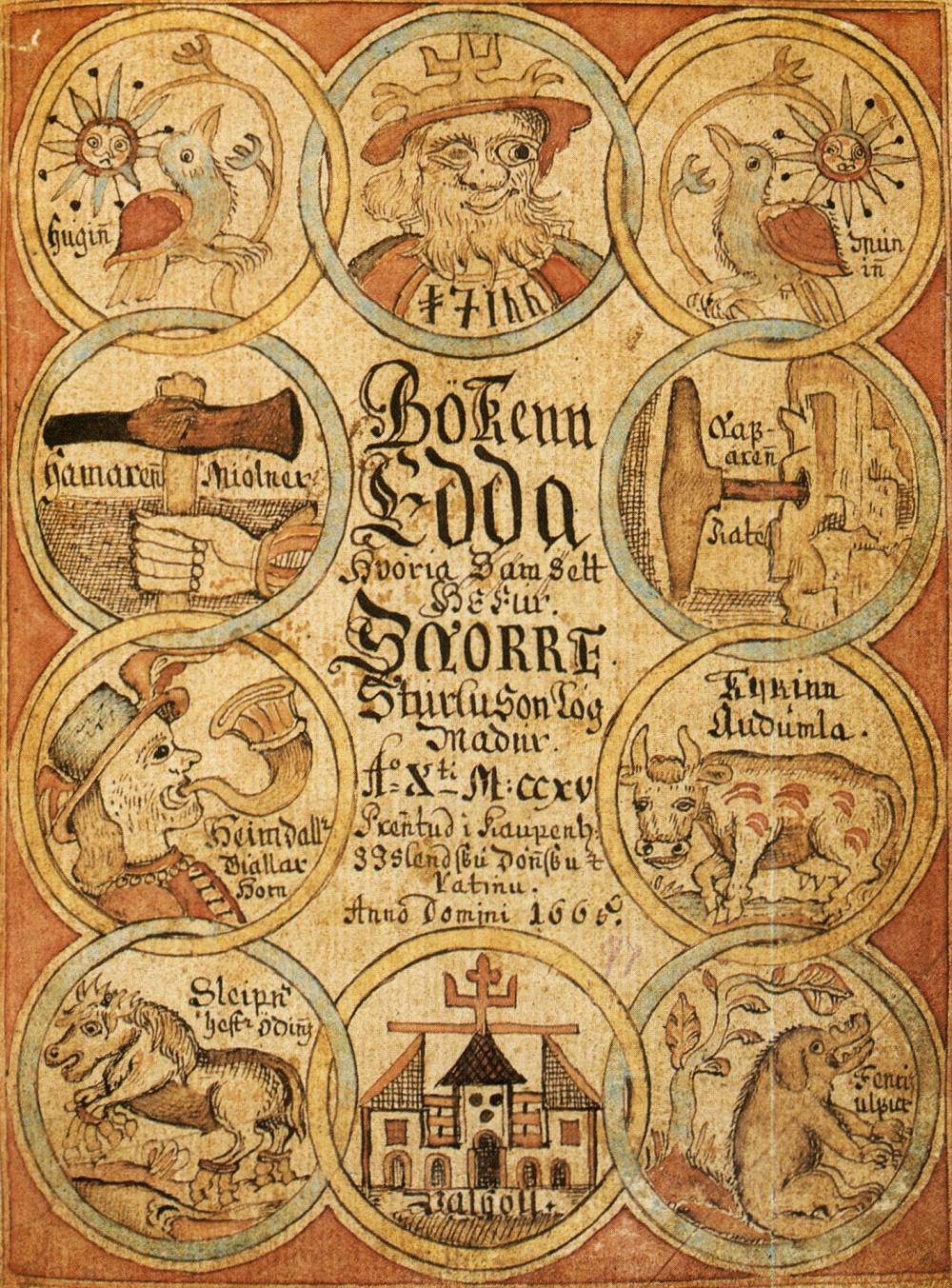Woden's Day
Gentlewomen and Gentlemen of the Vox Chaotica Council! I am taking this, the most likely part of the post to be read, and putting things I think you need to check out. First, the blog of the Inimitable KáLeena, who I have become friends with in real life–excuse me what do you MEAN "Cutter you have real friends? Like IRL?" And second, my slightly offensive Internet heckler, this picture:
Awkward transitions, AHOY! [You get a cool 100 points if you can tell me what videogame character I am imitating with all my AHOYs, even if you are the oftentimes annoying Internet troll-lo-lo.]
You may have thought it was dead, but I'm going to push through even though I'm not sure you want to know about it: our tour of the Norse Pantheon through the days of the week! Woden's day! We're doing it on monday because I'm craaaaaazyyy! Crazy like Psychedelic Santa On A Reindeer.
Woden is an old name for Odin, which really isn't that surprising when you read about Odin, because the Norse gave 50 billion names to everything, even rocks, and so their most important deity has at least six more. And here's the deal with Odin: he's all about being the most wise and knowledgeable of the Æsir–the traditional name for the Norse Gods who live in Æsgard (270 points to any and all who can tell me what the Nine Worlds supported by Yggdrasil are, and 30 if you can tell me what kind of tree Yggdrasil is).
So let's start with stories of The Hanged Man. Lots of people assume this means he tied a noose and hung himself to death, which is not the case. In fact, it's worse. Odin wanted to be wise and knowledgeable in all things, and he saw from his lofty perch up in Æsgard that the Norns–the keepers of Past (Urð), Present (Skuld), and Future (Verðandi)–had some knowledge of things he did not. The Norns would not tell him their secret, or what the shapes they carved into Yggdrasil's bark meant, so tied himself by his ankles to a branch above the Norns' well and stabbed himself with his trusty dwarven spear Gungnir in sacrifice to the mystical knowledge.
 For nine days and nights he hung, peering into the depths, waiting for the runes to reveal themselves to him. He accepted no food nor drop of water from any creature or force, and the other gods were forbidden from disturbing his ritual. At last, after hanging in the limbo between life and death for those nine full days, the runes revealed themselves and their magical powers to the All-Father, who screamed in exultation of this powerful and secret knowledge.
For nine days and nights he hung, peering into the depths, waiting for the runes to reveal themselves to him. He accepted no food nor drop of water from any creature or force, and the other gods were forbidden from disturbing his ritual. At last, after hanging in the limbo between life and death for those nine full days, the runes revealed themselves and their magical powers to the All-Father, who screamed in exultation of this powerful and secret knowledge.
But that's not all. Odin wasn't content with just knowing the 24 runes and their immense secret powers, he needed to know more, so he went down to the Norns, who took him to Urd's Well, where Mimir resides. Mimir is regarded as possibly the most knowledgeable being in the cosmos, and became so by imbibing of the waters in Urd's well. Odin asked the shadowy creature if he could drink of the well. The creature knew how precious, how valuable this drink would be and refused–unless Odin gave one of his eyes. Consumed with his lust for knowledge and wisdom, Odin gouges his eye out and drops it in the well. He is allowed by Mimir to get a drink, and the All-Father gains another grand measure of wisdom.
You'd think that's enough, but Odin wants all the new knowledge and wisdom from all the other worlds as well, so he often flies his two ravens–Huginn (thought) and Muninn (memory)–through all the other worlds to track knowledge and discoveries–which they communicate to the Highest Æs by perching on his shoulders and emptying their minds into his.
 tl;dr Woden is Odin, All-Father. He gives up basically everything in order to be wiser and smarter, including his eye and his lifeblood. He is the king of vigils, even with all this knowledge, he dies in Ragnarök.
tl;dr Woden is Odin, All-Father. He gives up basically everything in order to be wiser and smarter, including his eye and his lifeblood. He is the king of vigils, even with all this knowledge, he dies in Ragnarök.

